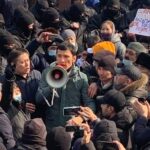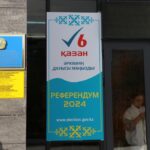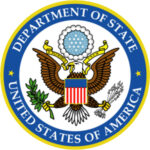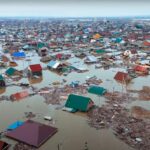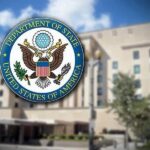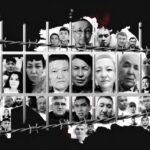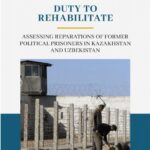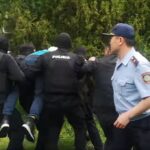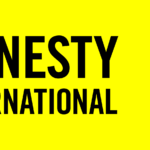REPUBLIC OF KAZAKHSTAN
Head of state: Nursultan Nazarbaev
Head of government: Karim Massimov
Death penalty: abolitionist for ordinary crimes
Population: 15.8 million
Life expectancy: 65.4 years
Under-5 mortality (m/f): 34/26 per 1,000
Adult literacy: 99.7 per cent
Reports of torture or other ill-treatment remained widespread, despite government promises to adopt a zero tolerance policy toward its practice. Impunity for such human rights violations persisted. The authorities stepped up efforts to forcibly return asylum-seekers and refugees to China and Uzbekistan under national security and counterterrorism measures.
Background
In January, Kazakhstan assumed chairmanship of the OSCE, making counter-terror and security
measures in Europe and Central Asia the OSCE’s priority. Human rights commitments did not figure prominently in the chairmanship’s agenda.
In May, parliament approved a constitutional amendment that made President Nursultan
Nazarbaev “leader of the nation”, thereby granting him and his immediate family permanent immunity from prosecution. The amendment also gave him the lifelong right to make final decisions on foreign and security policy matters. Defacing pictures of the “leader of the nation” and misrepresenting his biography were made criminal offences. In September, President Nazarbaev indicated that he would run for another term in office in 2012.
Torture and other ill-treatment The authorities introduced a number of measures intended to prevent torture, including widening access to places of detention to independent public monitors and committing publicly to a policy of zero tolerance on torture.
Kazakhstan’s human rights record was assessed under the UN Universal Periodic Review in February. In its presentation, the government delegation reiterated that the Kazakhstani authorities were committed to a policy of zero tolerance on torture, and that they “would not rest until all vestiges of torture had been fully and totally eliminated”.
In February, the government postponed the creation of an independent detention monitoring mechanism, the National Preventive Mechanism (NPM), for up to three years. However, in line with their obligations under the Optional Protocol to the UN Convention against Torture, the authorities continued to develop a legal framework for the NPM in close co-operation with domestic and international NGOs and intergovernmental organizations.
In April, the Prosecutor General’s Office told Amnesty International that members of Independent Public Monitoring Commissions had been given unprecedented access to pre-trial detention centres of the National Security Service (NSS); four visits had been carried out in 2009 and eight in 2010.
Despite these measures, people in police custody reported that they were frequently subjected to torture and other ill-treatment, both before and after the formal registration of their detention at a police station. Law enforcement officials often failed to respect the existing law on detention, which requires that they register detainees within three hours of their arrest.
In October, the UN Special Rapporteur on torture criticized Kazakhstan for continuing to conceal the full extent of torture and other ill-treatment in its detention and prison system.
Impunity
Impunity for such human rights violations remained fundamentally unchallenged. The authorities failed to fully and effectively implement Kazakhstan’s obligations under the UN Convention against Torture. They also failed to implement the recommendations of the UN Committee against Torture and other UN treaty bodies and special procedures, especially with regard to initiating prompt, thorough, independent and impartial investigations into allegations of torture or other ill-treatment.
In April, the Prosecutor General’s Office informed Amnesty International that in 2009 only two allegations of torture by security officers had been confirmed and that criminal cases had been opened against the offending officers. It dismissed as unfounded all allegations of torture by security officers raised by a number of people whose cases had been taken up by Amnesty International, other human rights organizations and the UN Special Rapporteur on torture.
_ In April, Alexander Gerasimov filed the first individual complaint against Kazakhstan with the UN Committee against Torture since the country’s ratification of the Optional Protocol to the UN Convention against Torture in 2008. Alexander Gerasimov alleged that at least five police officers tortured him in 2007. Using a technique called “dry submarino,” the officers tied his hands behind his back, pushed him face down on the floor, put a plastic bag over his head and held him down while one officer repeatedly jammed a knee into his back. The officers also delivered severe blows to his kidneys and threatened him with sexual violence. He was hospitalized for 13 days as a result of his injuries, and spent more than one month in intensive psychiatric care for post-traumatic stress disorder. In his complaint to the Committee, Alexander Gerasimov alleged that his case was not thoroughly or independently investigated and that no one was held accountable for these violations of his human rights.
Refugees and asylum-seekers
A new law on refugees, which came into force on 1 January, excluded certain categories of asylumseekers from qualifying for refugee status in Kazakhstan. These included people charged in their country of origin with membership of illegal, unregistered or banned political or religious parties or movements. In practice, this exclusion particularly affected Muslims from Uzbekistan who worshipped in mosques which were not under state control or who were members or suspected members of Islamist parties or Islamic movements banned in Uzbekistan, and who had fled the country, fearing persecution for their religious beliefs. The exclusion also affected people of Uighur origin from the Xinjiang Uighur Autonomous Region of China who were charged with or suspected of belonging to separatist movements or parties.
The newly formed State Migration Committee, under the Ministry of Labour, began a review of all cases of those granted refugee status by UNHCR, the UN refugee agency, prior to the State Migration Committee’s inception. It revoked the refugee status of many people from Uzbekistan and China, most of whom were awaiting resettlement to a third country.
Growing numbers of these individuals, as well as other asylum-seekers from Uzbekistan and China, were stopped by police or NSS officers for document checks and arbitrarily detained either for short periods in pre-charge detention facilities or indefinitely in NSS detention facilities pending forcible return to their countries of origin. They had no or limited access to lawyers, UNHCR or their families. Many complained about torture or other ill-treatment in detention.
_ In June 2010, NSS officers detained 30 Uzbekistani refugees and asylum-seekers in the city of Almaty with a view to forcibly deporting them to Uzbekistan. All 30 men had fled Uzbekistan due to fear of persecution for their affiliation to religious groups banned there.
Detainees’ wives were told that their husbands faced extradition to Uzbekistan on charges of membership of illegal religious or extremist organizations and charges of attempting to overthrow the state.
On 8 September one of the men, Nigmatulla Nabiev, was granted asylum for one year. However, on 13 September, the Almaty deputy prosecutor announced that the Prosecutor General’s Office had decided to extradite the remaining 29 men. At least two of the 29 were said to have been extradited to Uzbekistan in September before their appeals against their detentions and the decisions to extradite them had been heard. By the end of December the majority of the 29 men’s appeals had been turned down. At least two other Uzbekistani asylum-seekers were extradited in October and November.
SOURCE:
Taken from Amnaesty International web-site
http://files.amnesty.org/air11/air_2011_countryreports_en.pdf



